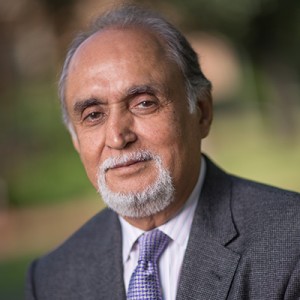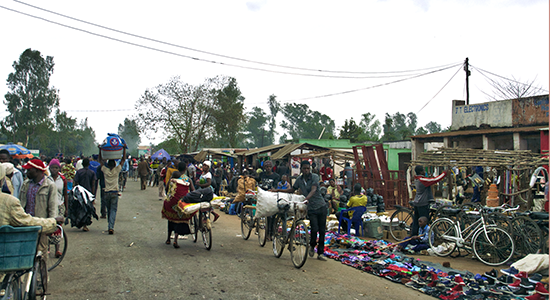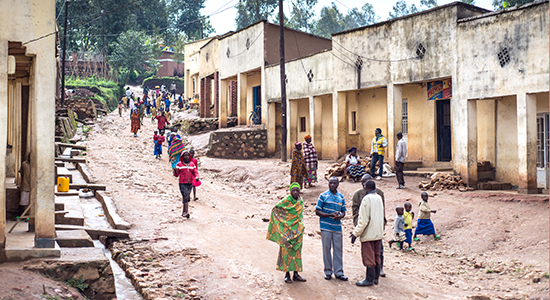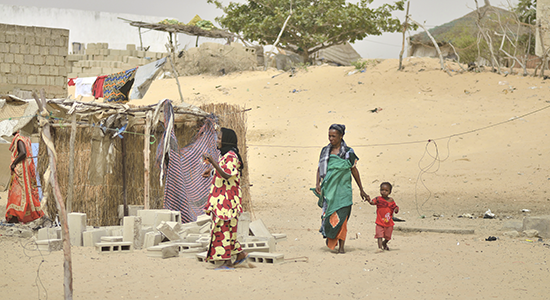In December of 2019, Research Triangle Park welcomed Med Aditus International Inc., a nonprofit organization dedicated to creating better access to affordable, high-quality medicines in sub-Saharan Africa.
By Rachyl Jones with The North Carolina Biotechnology Center
In December of 2019, Research Triangle Park welcomed Med Aditus International Inc., a nonprofit organization dedicated to creating better access to affordable, high-quality medicines in sub-Saharan Africa.
Dhiren R. Thakker, Ph.D., founder and CEO, learned about the area’s acute need during his professorship at the University of North Carolina Eshelman School of Pharmacy. In his 24 years there, he started the Office of Global Engagement to encourage faculty, staff and students to become global learners and address major problems in the world through their partnerships.
“One problem that became very clear is access to medicine,” Thakker said in an interview with the North Carolina Biotechnology Center. “Not only is there a problem with access, but a large percent of medicines available are substandard or counterfeit,” which is a leading cause of preventable deaths in the area.

When Thakker stepped down from his role at UNC, he decided to focus all his attention on this problem using his expertise in the pharmaceutical industry and biomedical sciences research. His nonprofit was named Med Aditus, meaning “access to medicines.”
“The vision and the mission are his life’s work,” says Chiara Canzi, chief communications officer.
The company is working to establish a pharmaceutical manufacturing facility in a sub-Saharan African country to produce medicines for the surrounding area. Alongside the area’s academic institutions, Med Aditus will develop a workforce and educational training program to create a pharmaceutical workforce in the area, which will contribute to both the healthcare industry and the economy.
The global scope is huge. The United Nations Development Program lists 46 of Africa’s 54 countries as “sub-Saharan.” The eight not included are Algeria, Djibouti, Egypt, Libya, Morocco, Somalia, Sudan and Tunisia.

“We want to be embedded in the fabric of society,” says Canzi. “We want the people in the country to come work in the factory and become public health advocates as well.”
“One manufacturing facility won’t solve the problem,” Thakker says. “But what we have in mind is a much larger goal. By being there and establishing our presence, we want to become a trusted player in this area and a catalytic force to change access for medicine.”
Since Med Aditus was founded, it has established a board, a small team of employees and a network of nearly 80 volunteers. It has also formed an agreement with Rymedi, a South-Carolina-based technology company, which will build an intelligent data system to ensure the African facility will function at the highest standard of quality and performance.

While many people in sub-Saharan Africa are lacking the basic medicines to keep themselves healthy, Thakker hopes to work in key sectors, including pediatric drugs. In some countries like Malawi and Senegal, the average age is under 20 years old. With the majority of the population being young, pediatric drugs will play an important role in building a strong, healthy community.
Thakker is also interested in exploring how Med Aditus can have a role in neglected diseases caused by parasites or other infectious agents. He says while many drugs have been discovered to cure such diseases, they are not available in many sub-Saharan African countries because the companies have no financial incentive to sell there. With the title of a nonprofit, Med Aditus could make a difference in access to these medicines.

After a year of research and building the company, Med Aditus is ready to walk the grounds. Before the end of February 2021, Thakker plans to visit a selected list of countries, including Rwanda, Malawi and Senegal, for what he calls a “listening tour.” The goal of this tour is to identify the country to establish Med Aditus’ first presence, but to do so in an organic way.
“While we know what we want to do, we don’t want to do it in a vacuum,” he says. “Through this tour, I will listen to various stakeholders within those countries, including the government and private sector people.”
By mid-2021, Med Aditus will have selected a country and developed a strategic plan. By the end of 2021, it hopes to secure funding to break ground in 2022.
For the original article, please click here.




